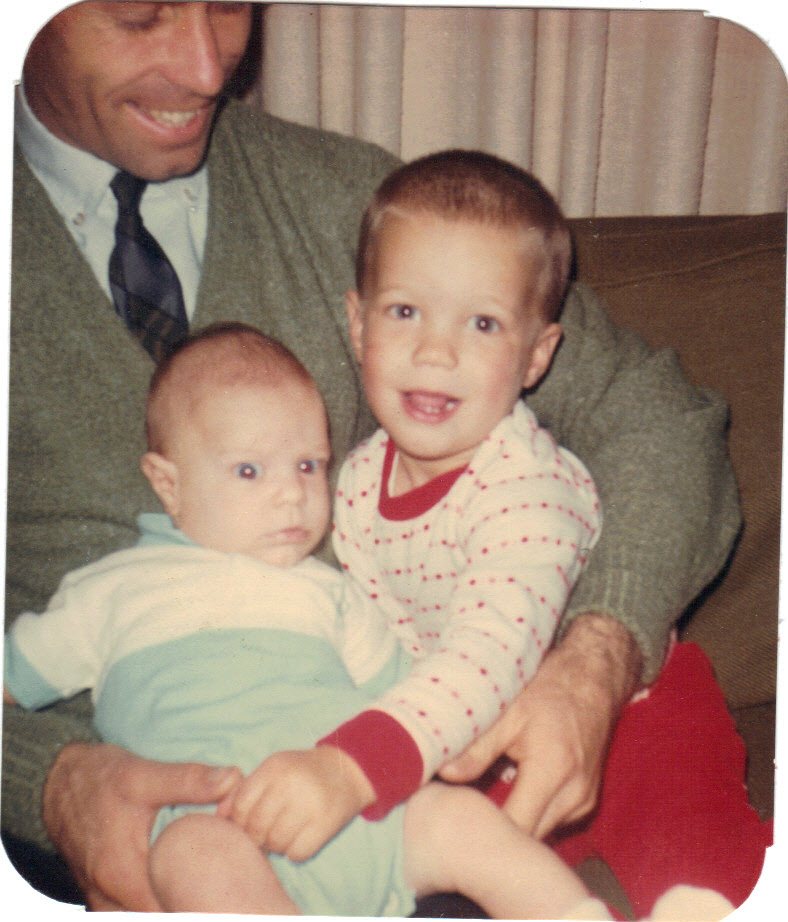There’s a skill to giving comfort. Comforting may come naturally if you were raised by parents who comforted. My parents took responsible care of their daughters, but neither were very nurturing by nature or habit. I learned to give comfort by observing when I have felt comforted and how it was given. In this post, I’m sharing some things that are not usually comforting, and some prime examples of when I was profoundly comforted.
You May Mean Well…
My first husband died when I was twenty-three years old. We had two baby boys, two years old and eight months old. His death was shocking to everyone who knew him. He died from a burst aortic aneurism. No warning. Very sudden. I was thrown into the deep end of grief with waves of attempted comfort coming from all directions. Very little was actually giving comfort. Maybe because it was too horrendous a loss to be comforted. But one attempt stands out as ridiculously non-comforting.
At his memorial service a woman I didn’t know came up to me and said, “I know how you feel. My cat died recently.” Even in my numb state, that attempt at giving comfort stunned me. A cat? She, no doubt, was very attached to her cat, but it was offensive for her to compare her grief to mine! “I know how you feel” is rarely giving comfort even though it may be true.
Many, many others said, “I’m so sorry. Is there anything I can do?” Or, “Let me know if there’s anything I can do.” Most just didn’t know what to say. What is there to say when someone’s world has just been turned upside down? Very little helps.
A Profound Comfort

In the days between his death and his memorial service, my sister Sally spent a couple of days with me. One of those days we sat down to eat lunch. As was the habit in our families, we bowed our heads to say a silent prayer before eating. When I tried to say “grace,” the tears began to flow. How could I say “thanks” to God when my husband of only four years was dead? I just let the tears fall. Sally was silent. When I finally looked up, she had tears running down her cheeks, as well. She simply cried with me. She didn’t try giving comfort with meaningless words like, “It’s going to take time to get through this.” Or, “What can I do to help?” I still remember her tears as the most profoundly comforting experience of those nightmare days.
Although many people wanted to see me and share their grief with me, the only ones I wanted to see were other widows who had lived through this experience. I remember there were three who made a special effort to come to my home to see me in private. I needed proof that it was possible to survive a blow such as this one. It didn’t matter what they said. They didn’t need to say anything. The very fact that they were alive told me that I, too, would survive, even though at that time, I couldn’t imagine how.
Thanks, But No Thanks!
It didn’t take long for me to realize that being a young, attractive widow immediately made me a target for preditory men. I was first propositioned by my obstetrician. I asked myself, “Could he possibly have meant what I think he just said?” Yes.
A few male “friends” (who were currently married) dropped by to see how I was doing. I intuitively knew what they wanted and told them, “Thank you, but I’m uncomfortable with you coming to see me without your wife. Please don’t come back.” None of them ever returned with their wife.
Comforting Words
Listening to Understand is the skill of repeating back what a speaker has said or what you observe them to be feeling to be sure you understand. A friend has been dealing with the shoddy workmanship of a contractor hired to work on her house. She’s lost thousands of dollars and is now in a law suit to try to reclaim some of her loss. Meanwhile, she’s lived without a kitchen for three years and in a home that has been torn apart. On our regular “catching up” call, I ask how the house and the law suit are progressing. She knows I care and will listen to her anger and exhaustion. When I reflect back, “It’s like you live on a battle field. The war seems to have no end!” Or, “You’re living a nightmare and you wish it was time to wake up!” When she replies, “Yes! That’s exactly what it’s like!” I know I’ve given her a small bit of understanding which is comforting. My statements summarize the circumstances and emotional state I observe in her.
Comforting Acts

One reason we love our pets is because they know how to comfort without words…by just being.
Recently I was hospitalized with a heart scare. I called my step-daughter, Karen. I knew she would come if she could. Of my children, she lives the closest to me. Very shortly she joined me in the ER. Her presence was so comforting to me. She is someone who knows how to just be there…quiet unless talk is required, happy to support in whatever way she is asked…loving without smothering, concerned without spreading fear.
My son, Peter, came when he learned of the “scare.” The following day I felt fine and wanted to go home. The doctor was very insistant that I stay and have some comprehensive tests done. At my son’s urging, I finally relented and agreed to stay for the tests. The doctor left the room. I turned to Peter and said, “I think I’m having a panic attack! I just want to go home!” Peter put his arms around me to deliver a big hug and said with compassion, “I’m so sorry you have to do this, Mom.” That was exactly what I needed. He empathized with my feelings instead of trying to reason with my mind. (BTW: All tests came back showing a perfectly healthy heart!)
Just Listening

About a year after my son died, a young couple, friends, who had not known Steve but loved me, called and asked if they could come by to see me. They said, “Would you tell us about Steve? What was he like? What was it like to be his mother?” I brought out a photo album. We sat around a table on my patio and for a couple of hours they simply listened and asked caring questions. They let me talk about my precious son and share some of my memories. Their interest and listening was such a gift to me! I still remember that gift with deep gratitude.
Grieving needs a listening ear offered but not demanded. So many are worried about what to say when there is nothing to say that will take away the pain of a loss…any loss. Many times the best you can do is be willing to just listen to the story of the loss and feel the feelings of that loss.
The Main Criteria for Being a Comforter
The main requirement for being effective at giving comfort is to have an open heart…be willing to feel another’s pain or to just be present while they feel their pain. Be outraged if they are outraged. Open your heart to hear their anger, confusion, devastation and loss. Be willing, for whatever time you have to give, to be a safe container for their feelings. Or notice what needs attention and just do it…mow the lawn or wash the dishes or vacuum the house. Don’t ask. Just step up and do it. Babysit for an afternoon so she can have the luxury of grocery shopping alone or wandering through the mall. Take the car to get an oil change. Offer to help clean out the garage…then make a date to do it. After her daughter’s death, my sister Mary delivered meals in small packages to her grieving son-in-law every week for months. This act of service was an acknowledgement of their shared grief.
Whatever you do or say, you have my love and support!


